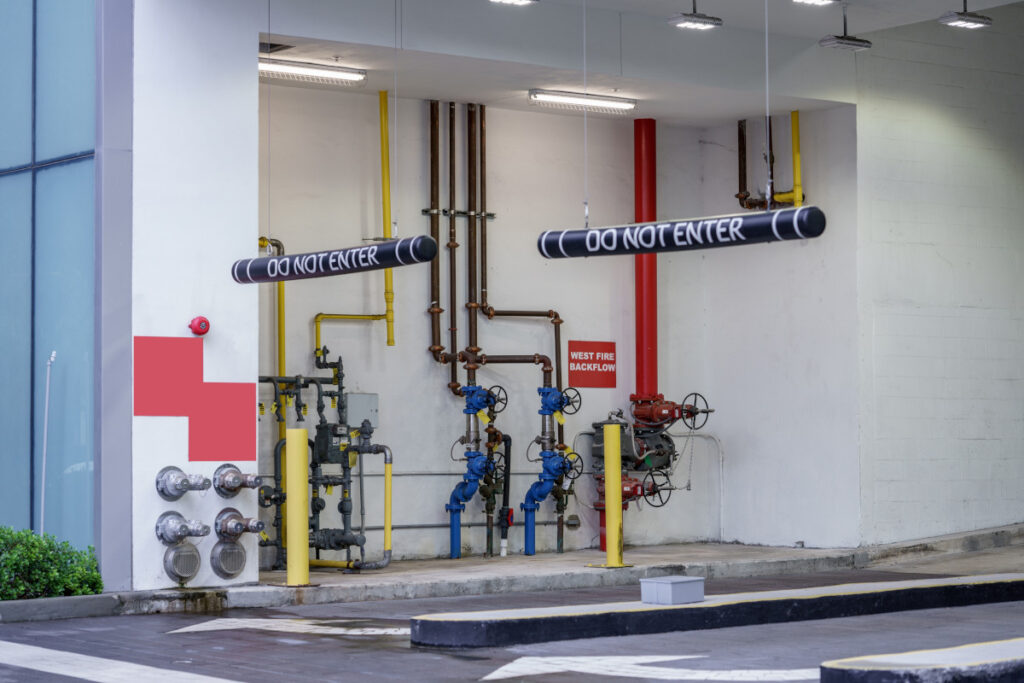Denver Backflow Regulations Guide
Denver’s backflow prevention regulations are essential for protecting the city’s drinking water supply from contamination caused by cross-connections, backsiphonage, or backpressure. Enforced by Denver Water and the Colorado Department of Public Health and Environment (CDPHE), these measures ensure public health and safety by preventing pollutants from entering the water system.
Non-compliance can lead to penalties, including a $250 fine after three notices and 60 days of inaction, suspension of water service until compliance is restored, and no refunds for fines even after resolving the issue. This page is a guide to Denver’s regulations, helping you understand the requirements and how to stay compliant.

Denver Backflow 101
1. Penalties for Non-Compliance
Failing to meet Denver backflow requirements has serious consequences:
- $250 Fine: Issued after three notices and failure to act within 60 days.
- Service Suspension: Water shutoff until compliance is restored.
- No Refunds: Fines remain in place even after resolving the issue.
2. Who Must Comply?
Backflow prevention is required for:
- Commercial and Industrial Properties.
- Irrigation Systems and Fire Lines.
- Homes with Auxiliary Water Supplies (wells, ponds).
- Single- and Multi-Family Residences if site hazards are identified.
3. Legislative Changes: HB24-1344
HB24-1344 requires licensed plumbers for backflow testing as of July 1, 2024. A temporary allowance through April 2025 permits certified testers to continue inspections while lawmakers revisit the rule.
4. Approved Backflow Devices
Only USC-approved devices meet Denver Water’s standards:
- RP Assemblies: For high-risk commercial and irrigation uses.
- DC Assemblies: Fire lines and low-risk residential systems.
- PVBs: Designed for irrigation systems.
- AVBs: Restricted to internal plumbing tasks, not allowed for irrigation.
5. Installation Standards
Devices must be installed at least 12 inches off the ground and 12 inches from the walls. Assemblies over 5 feet high require platforms. Freezing protection and drainage systems are mandatory for certain devices.
6. Testing and Reporting Requirements
All backflow devices must be tested upon installation and annually thereafter. Testing must be performed by certified professionals, and results submitted to Denver Water. Missing deadlines can result in fines and service suspension.
7. Irrigation Backflow Compliance
Irrigation systems are subject to seasonal testing from May through September. Property owners receive reminders 30 days before testing deadlines, ensuring systems are compliant during active months.
8. Addressing Cross-Connection Hazards
Cross-connections occur when potable and non-potable systems mix, creating risks for contamination. Denver Water enforces strict measures to prevent:
- Backsiphonage: Negative pressure pulling contaminants into the water supply.
- Backpressure: Private system pressure forcing pollutants into clean water lines.
Looking for certified backflow services in Denver? We simplify the process by connecting you with licensed plumbers who provide up to three competitive quotes. Our platform ensures you receive quick, reliable options tailored to your needs, saving you time and effort. Get started today and let the experts handle the rest.